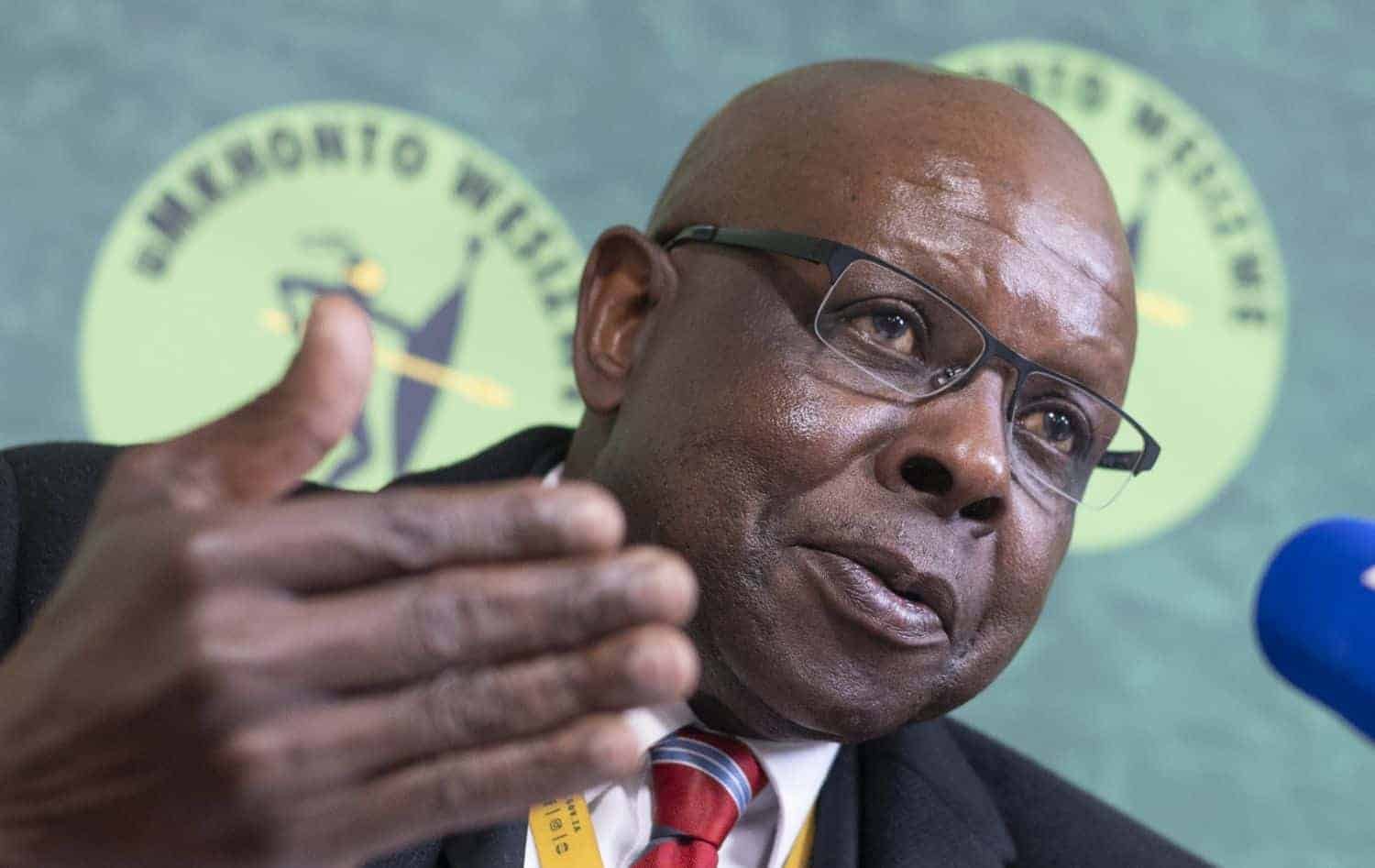The MK party has not held an elective conference since it was formed in 2023, leaving the responsibility of choosing leaders in Jacob Zuma's hands.

With just months until the local government elections, the third biggest political party in South Africa appears to be imploding.
On Tuesday night, the Umkhonto weSizwe (MK) Party announced changes to its parliamentary team, the most notable being the removal of Colleen Makhubele as chief whip and the appointment of Des Van Rooyen to replace her.
Makhubele was also removed from the party’s media WhatsApp group.
However, in a dramatic turn of events the party’s president, Jacob Zuma, then suspended his deputy president John Hlophe. He also reinstated Makhubele back to her role.
Head of Presidency statement
The MK party’s head of presidency Magasela Mzobe said Zuma first learnt of the changes to the parliamentary caucus upon his return from Burkina Faso.
“The president has taken a decision to issue a precautionary suspension to the party’s deputy president and the leader of the MK party’s parliament caucus, Dr John Hlophe, from both his leadership roles with immediate effect, pending a full investigation into his conduct.
“This decision is meant to affirm and send a strong message and the principle of collective leadership across all structures within the uMkhonto weSizwe Party.
“Consequently, the decision taken by Dr Hlophe to remove comrade Colleen Makhubele and appoint comrade Des Van Rooyen is therefore nullified,” said Mzobe.
Will Hlophe quit?
An unverified message, purported to be written by Hlophe to the party, circulated on social media soon after. It stated his intention to resign from the party rather than be suspended. The authenticity of the message has not been verified, and Hlophe has not resigned his membership at the time of publishing.
The Citizen has also reached out to Makhubele for comment. This will be included once received.
ALSO READ: Floor crossing: Former top ANC leader in the Western Cape praises the DA for good governance
There have been reports of tensions between Makhubele and Hlophe, although the party would not be drawn on it.
Before things fell apart
Earlier this year, both Hlophe and Makhubele held a media briefing scolding the party’s spokesperson Nhlamulo Ndhlela and Zuma’s daughter Duduzile for alleged ill-discipline.
The briefing was meant to refute allegations that the MK party caucus had lost confidence in Makhubele’s leadership in parliament.
Hlophe and Makhubele formed a united team at the time.
Zuma the ‘dominant political force’
Theo Neethling, a political analyst from the University of Free State, said the MK party appears to function at Zuma’s behest. He said this is problematic for democratic processes in the party.
“Zuma effectively commands the MK party, serving as both its president and dominant political force. Despite internal disputes and ongoing legal challenges, the party’s structures and recent high-level decisions suggest that it functions largely as an extension of Zuma’s personal authority and political agenda,” he said.
Recently Zuma told a media briefing in Durban that he had appointed ANC stalwart Tony Yengeni as the party’s second deputy president to help run the party while Hlophe focuses on running the parliamentary caucus.
Hlophe depends on Zuma
Neethling said Hlophe’s future is now dependent on Zuma.
“The National Assembly adopted a resolution to impeach Hlophe in February 2024. In response, Zuma intervened, bringing him into the fold of the MK party. As a result, Hlope now finds himself dependent on Zuma’s internal political agenda and is compelled to align with his strategic decisions.
“Like other senior figures within the MK party, Makhubele’s political future is inextricably tied to Zuma’s decision-making and approval,” he said.
Neethling said although the MK party’s leadership has yet to be formally elected, Zuma’s popularity means the party is a major player in South African politics.
“The MK party captured 14.6% of the national vote and an impressive 45% in the KwaZulu-Natal provincial election – by far the strongest showing of any new entrant in South Africa’s sixth democratic elections to date.
“Zuma’s enduring popularity, particularly among segments of the Zulu electorate and those disillusioned with the ruling establishment, has been central to this success,” he said.
Neethling said while Zuma’s popularity is polarising in the national context, it continues to serve as his party’s key mobilising force – even after his imprisonment.
How are decisions made in the MK party?
He said the MK party formally embraces democratic centralism, a Leninist organisational principle that permits internal debate but requires strict adherence to collective decisions once adopted.
“However, whether this principle operates in practice within the MK party remains uncertain.
“Little is known about the party’s internal decision-making processes, though available evidence suggests Zuma exercises extensive control and influence as both president and self-styled commander-in-chief. He is the party’s undisputed centre of gravity – the chief decision-maker and public face around whom the MK party’s identity, strategy and support revolve,” he said.
NOW READ: Mbalula’s call to Helen Zille: DA ‘dragged’ into ANC battle over Brink






